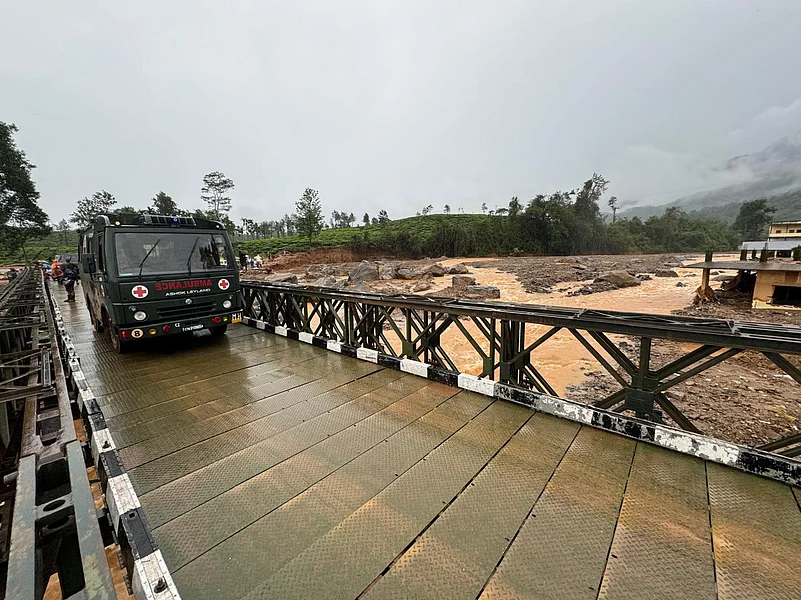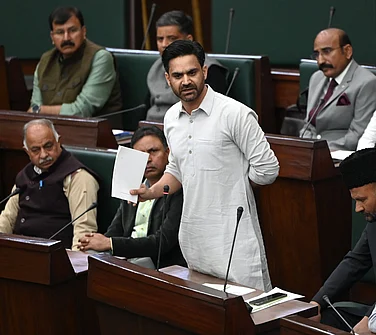The Indian Army, spearheading the rescue operations in Kerala's Wayanad where deadly landslides on July 30 caused widespread devastation and deaths, erected within hours a 190-feet long 'Bailey' bridge to connect the worst-hit areas of Mundakkai and Chooralmala.
According to Ministry of Defence, the Army built the Bailey bridge in Wayanad in a record time of 16 hours.
A Bailey bridge is a type of portable, pre-fabricated, truss bridge built without the requirement of special tools of heavy equipment for assembling. The concept Bailey bridge of was developed in 1940–1941 by the British for military use during the Second World War.
The bridge is believed to have got its name from Donald Bailey, a civil servant in the British War Office who tinkered with model bridges as a hobby.
The Bailey bridge built in Wayanad has a weight capacity of 24 tonne. Due to its length, the bridge is being built with a pier in the middle of the river, which will facilitate rescue operations upon its completion.
Materials for building the Bailey bridge was transported to Wayanad's Chooralmala from Delhi and Bengaluru, according to a news agency PTI report. The materials flown into Kannur airport were taken to Wayanad by 17 trucks.
Three sniffer dogs, trained by the army to detect people buried under soil, also arrive at the disaster site by Wednesday night. The dogs were flown in from Meerut on a special Air Force plane.
Kerala Revenue Minister K Rajan, who is in the disaster-struck region coordinating the rescue efforts, said over 1,600 rescue workers, including from the Army, Navy, NDRF and the police were in the landslide-hit region carrying out the intensive rescue mission, in which operations to pull out survivors ended on Thursday, however, the work to retrieve bodies will continue.
While the official death toll in Wayanad landslides that took place in the early hours of July 30 was 190, the count by rescuers was over 200 with the likelihood of it going higher in the coming days.
With the completion of the Bailey bridge between Chooralmala and Mundakkai, the required equipment for rescue operations can be transported to disaster-affected areas, the minister said.
Rescue efforts were hindered by a combination of challenges, including treacherous terrain due to destroyed roads and bridges, and a shortage of heavy equipment, making it difficult for emergency personnel to clear mud and huge uprooted trees that fell on houses and other buildings, causing total collapse.


























